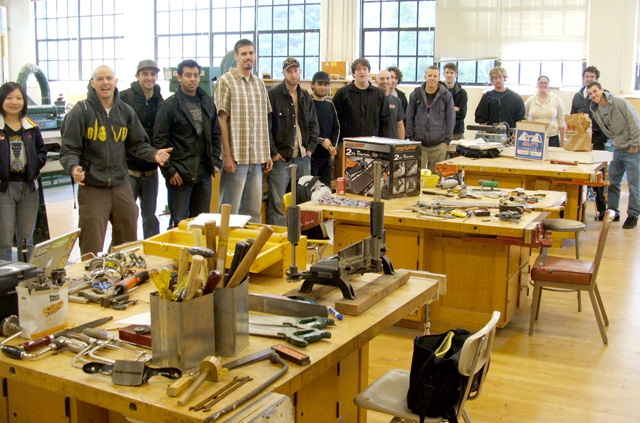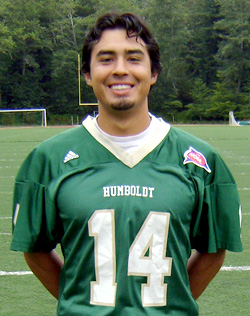
Named Giving Tools 4 Life, the new club is refurbishing and packaging the tools for shipment. Collecting will continue into the fall and the club will accept donations any time.
Giving Tools 4 Life is also designing and building woodworking planes from scrap lumber. These will provide Malawi students both the tools and the knowledge to create their own planes.
Next year the club hopes to supply the University with a number of larger tools—a gas-powered cement mixer and an alignment machine for cars are needed—but shipping costs are a major hurdle for heavy equipment.
Giving Tools 4 Life emerged this semester from a new course titled IT 308 Socio-Technical Thinking, taught by Professor Eric Van Duzer in the Department of Applied Technology. Student projects are required to examine the intersection of technology and society.
All 27 students in Van Duzer’s class, including two Chinese undergraduates, are members. Most of them contributed three tools or more. To date they have stood up the club, developed a Web site and a Facebook site, written the mission statement, held a benefit concert (that raised more than $1,000) and agreed to tax themselves to generate start-up capital.
The students chose a club structure for the project because it allows them to provide donors with tax deductions. It also enables them to take advantage of HSU resources, namely the processing of donations.
Giving Tools 4 Life formally came into being during spring break and a fellow club, Industrial Technology, supported the benefit concert in the run-up to the new club’s creation.

As for the heavier tools sought for next year, “It is possible that we will attempt to raise the money and then purchase the equipment in Africa to avoid the shipping costs,” Van Duzer said.
The students chose the Livingstonia project when they realized that the U.S. standard of living dwarfs that of Malawi. Landlocked by Zambia, Mozambique and Tanzania, Malawi’s gross domestic product per capita is $800 a year. The nation was established in 1891 as the British protectorate of Nyasaland, became independent Malawi in 1964 and today it is 80% Christian.
The University of Livingstonia is an adjunct of the Synod of Livingstonia. It is named after Dr. David Livingstone, the 19th century Scottish Congregationalist physician, missionary, educator and explorer who became world famous when a New York newspaper reporter asked, “Dr. Livingstone, I presume?” Livingstone’s whereabouts in southern Africa had been unknown for six years.
Van Duzer’s sister is a professor of architecture at the University of Minnesota. Last year, she took a group of students to Malawi to assist the University of Livingstonia with site planning.
“While there, she spoke with the principal of the Technical College, who indicated that a severe lack of tools and equipment was limiting the ability to educate students,” Van Duzer said. “When I learned about the situation, I asked the principal to send a list of needed tools with the idea that I might be able to help personally to collect them.”
Van Duzer’s students were free to select any project, local to international, they preferred for the Socio-Technical Thinking course, but when they heard about Malawi’s impoverishment and need, the entire class voted to take it on.
“Just $36 pays for a year’s tuition” at Malawian K-12 institutions, said club member and graduating senior Enrique Leyva of San Diego. “As an economics student, I know that education is the way out of poverty. Creativity overcomes years of economic hardship and educating the poor breaks them out of the poverty trap. We hope the community and our local businesses will help us to attract more funding.”
Donations can be arranged with Dr. Van Duzer at 707/826-3726 or evv1@humboldt.edu.